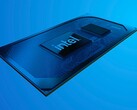The existing Trusted Platform Module (TPM) might not be very well known, but is enough to say that it is a chip used to secure hardware and cryptographic keys. Its replacement, fully supported by AMD, Intel, and Qualcomm and developed by all these three big names alongside Microsoft, is simply known as Pluton.
Although it was revealed yesterday, Microsoft Pluton is not entirely new. This security chip is based on the same technologies that are already in use in Azure Sphere applications and to protect the Xbox consoles. Its major advantage is the tight hardware integration with the main system processor. Existing TPMs are chips separated from the CPUs and this design approach allows attackers to steal the data moved from TPM and CPU when gaining physical access to a device.
Microsoft Director of Enterprise and OS Security, David Weston: "We believe that processors with built-in security like Pluton are the future of computing hardware. With Pluton, our vision is to provide a more secure foundation for the intelligent edge and the intelligent cloud by extending this level of built-in trust to devices, and things everywhere."
In the future, Microsoft plans to update security updates from the cloud to Pluton chips. The software refresh will arrive monthly on the Patch Tuesday, alongside regular Windows fixes.



























